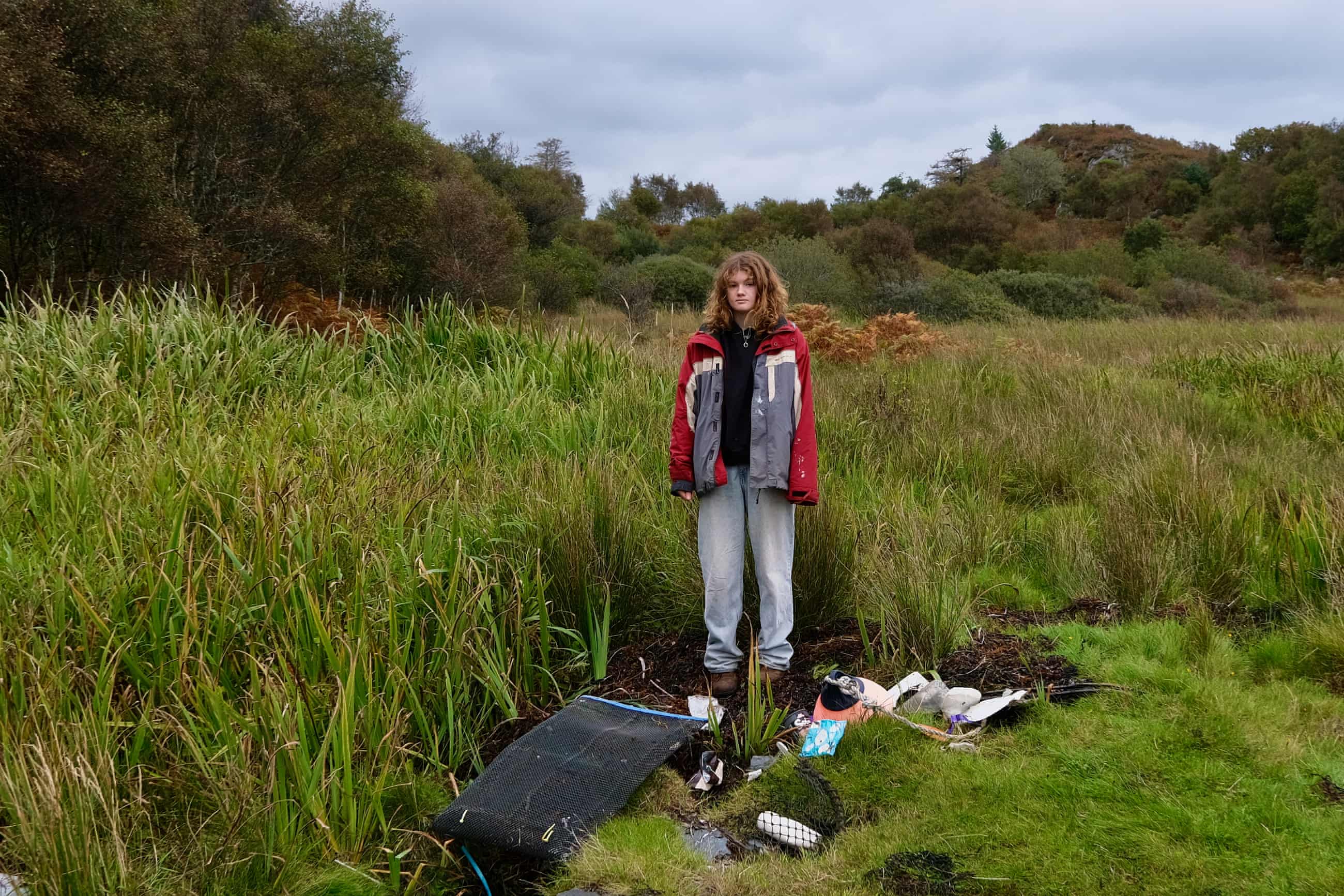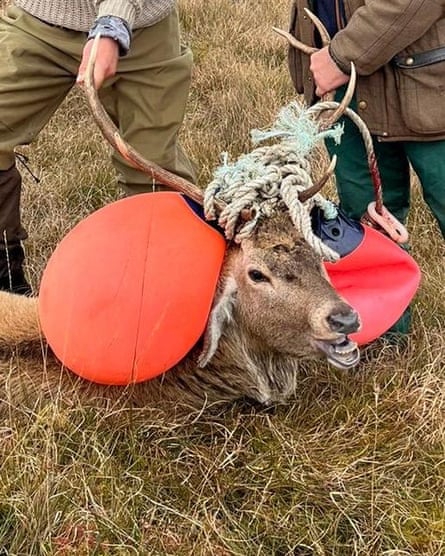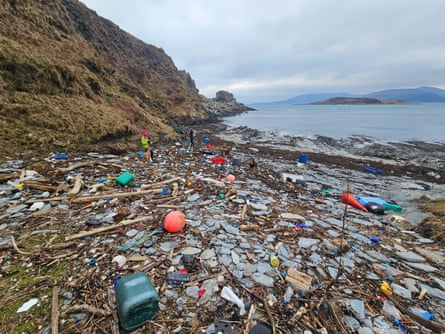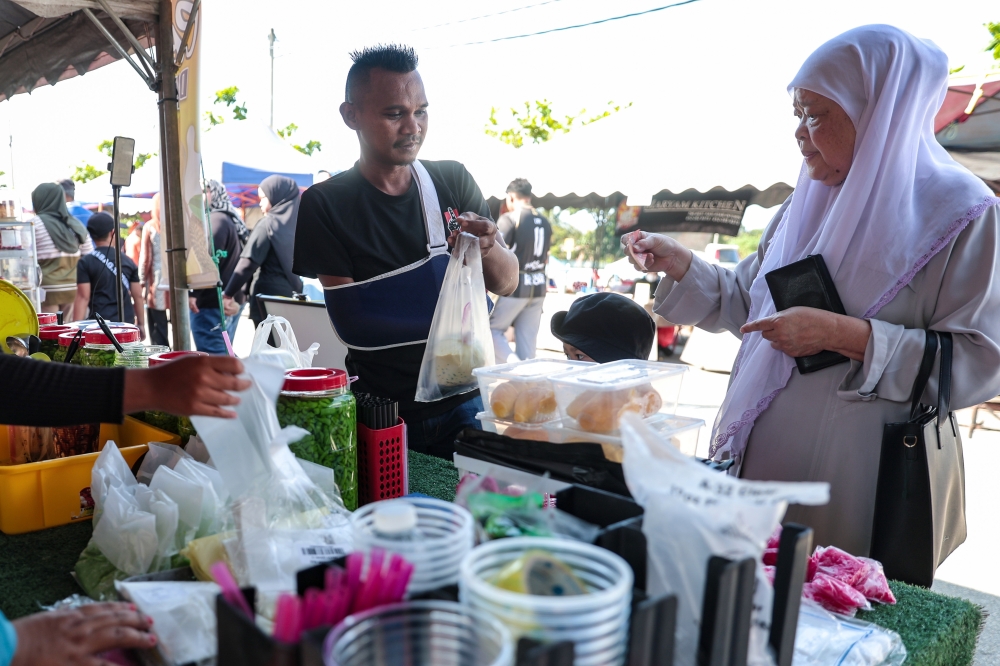‘You don’t get to aim big when you are somewhere small’: A teenager’s fight to end single use plastics on her Scottish island
Groundswell of support for ban propels campaign of Tabby Fletcher, 17, from her island home on Jura to parliament

Tabby Fletcher, a 17-year-old from the Isle of Jura, off the west coast of Scotland, lives in what many people would probably assume is a pristine wilderness. Yet she regularly sees dead birds, their bodies entangled in plastic, among piles of waste washed up on the island’s beaches after powerful storms.
“In January, we had Storm Éowyn,” she says. “Huge storm surges brought piles of plastic on to the beach close to my house. I saw dead birds wrapped in plastic. It was obvious from little bits inside their decomposing bodies they had eaten plastic.

“There was a dead goat too – its head stuck in a plastic fishing net. It’s really horrible.”
She decided to start a petition calling on the Scottish government to ban all single-use plastics. This has now received more than 26,000 signatures and the backing of MSPs in the Highlands and Islands.
“Around 50% of the plastic we use in the UK is single use, and by cutting these items out it creates a more sustainable footprint in the natural world,” she says.
She describes images she has seen of red deer, which feed on seaweed, entangled in washed-up fishing nets.
“If they are left to their own devices, they can starve to death. There are fibres of plastic that come off the netting too,” she says.
Plastic endangers seabirds, seals and other wildlife through ingestion, entanglement and toxic contamination, while microplastics – tiny particles from broken-down plastic – pose a long-term threat to wildlife and human health. It can contain any of more than 16,000 chemicals, many of them linked to health issues.
The teenager says that although her community organises beach clean-ups, plastic pollution is a growing problem that will only worsen unless action is taken nationally.
“I’m from a very small community. You don’t get to aim big when you are somewhere small,” she says. “So it’s good to see people writing to me and having the same thoughts and beliefs as I have.
“I’m hoping that Scotland will become the first country in the UK to ban single-use plastics. At the very least, we should have a conversation to prove that it is possible.”
She chose to focus on single-use plastic, rather than the plastic fishing nets or “ghost gear” that make up 20% of marine plastic pollution, because the Scottish government has already proposed introducing measures to tackle waste fishing equipment.

The amount of single-use plastic collected on beaches in the UK and the Channel Islands was up 9.5% in 2024, compared with 2023, according to the Marine Conservation Society’s annual State of our Beaches report.
Tabby’s petition will be discussed on 24 September by a petitions committee of MSPs. Next steps could include recommending wider debate, a short inquiry or recommending government actions.
MSPs for the Highlands and Islands say Tabby’s concerns echo those of their constituents.
Emma Roddick, a Scottish National party MSP for the region, says she supports the petition. “The government could be doing more,” she says. “It’s nice to see a young person taking action like this.”
Roddick says she has heard from constituents on the islands of Eigg and Skye and the Knoydart peninsula about “tiny threads” of plastic washing up on beaches, adding that these were very difficult for communities to clean up.
A blanket ban, however, would be difficult to implement, she says. “For instance, in the NHS, there are plastic items we haven’t found a substitute for. It is also difficult for the government to ban anything we don’t have absolute power over.”
Ariane Burgess, Green MSP for Highlands and Islands, says she is “incredibly impressed” by Tabby’s campaign and fully supports her petition. “The amount of plastic waste washing up on coastal communities’ shore is overwhelming,” she says.
Kim Pratt, circular economy campaigner at Friends of the Earth Scotland, says: “The first thing the government needs to do is to enforce the existing ban
“The Scottish government has banned some single-use plastics, such as cutlery, plates and expanded-polystyrene food containers, but it is not enforced,” she says. “Creating a ban without acting on it is meaningless.”
[Source: The Guardian]






















































